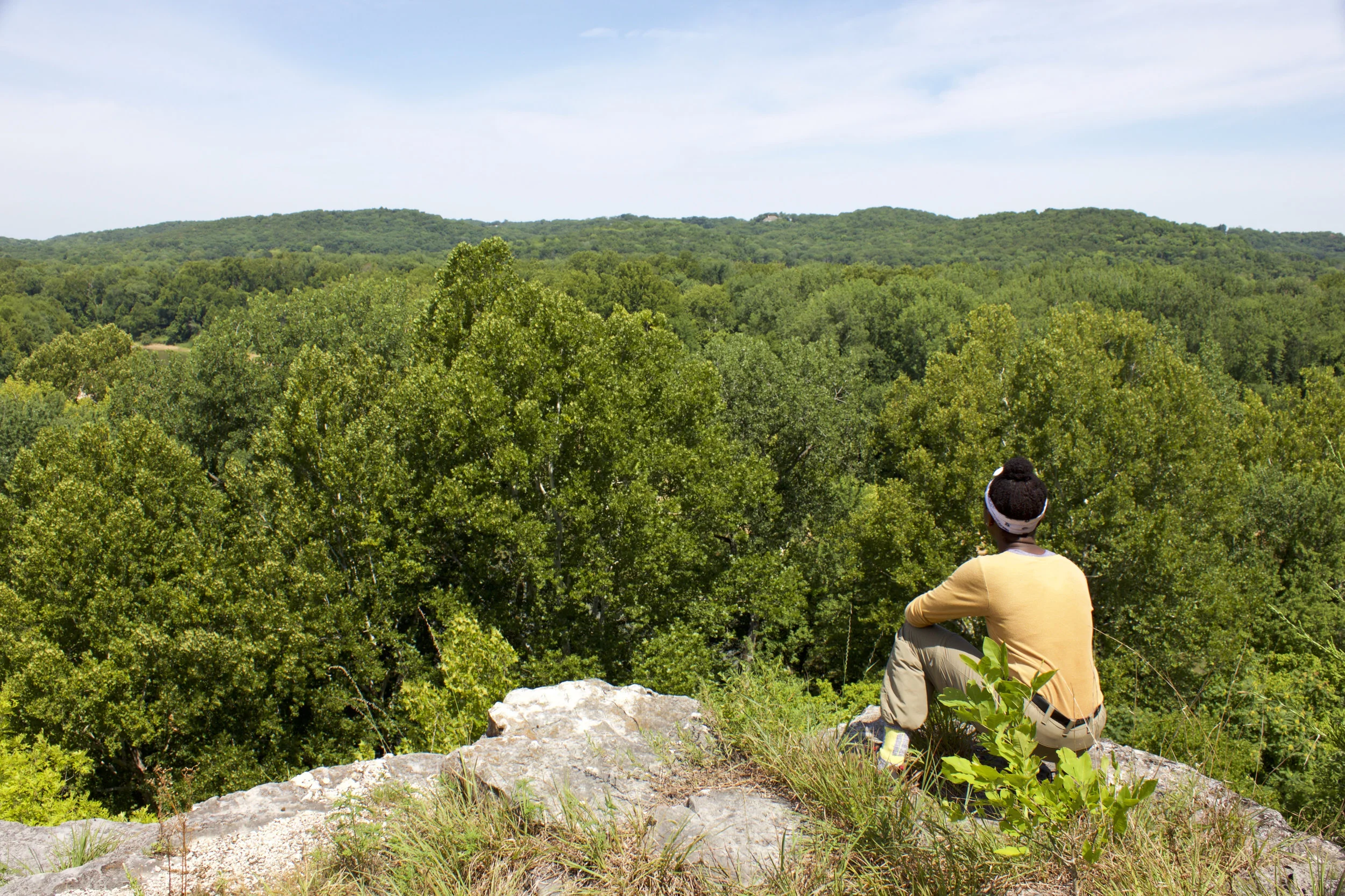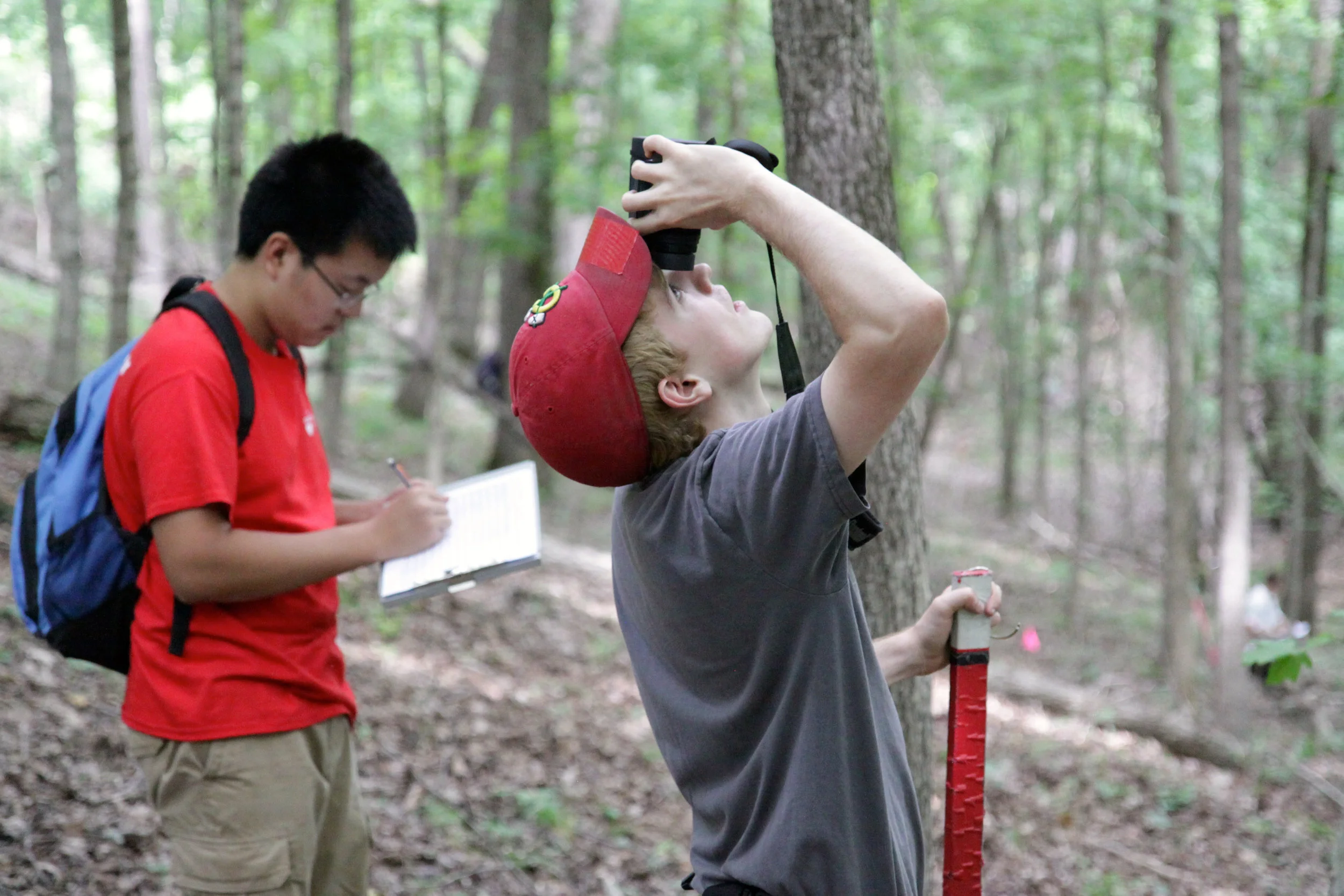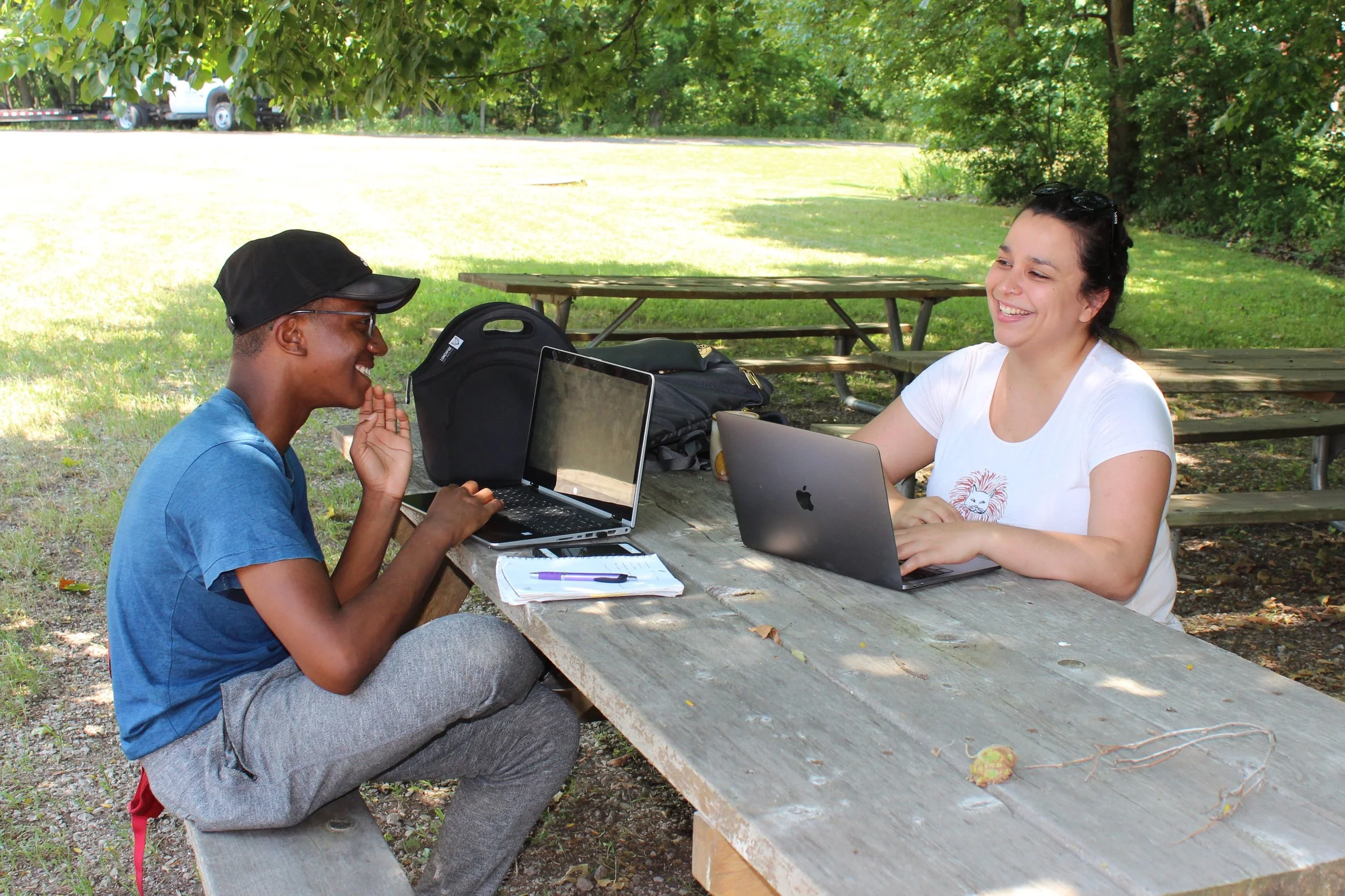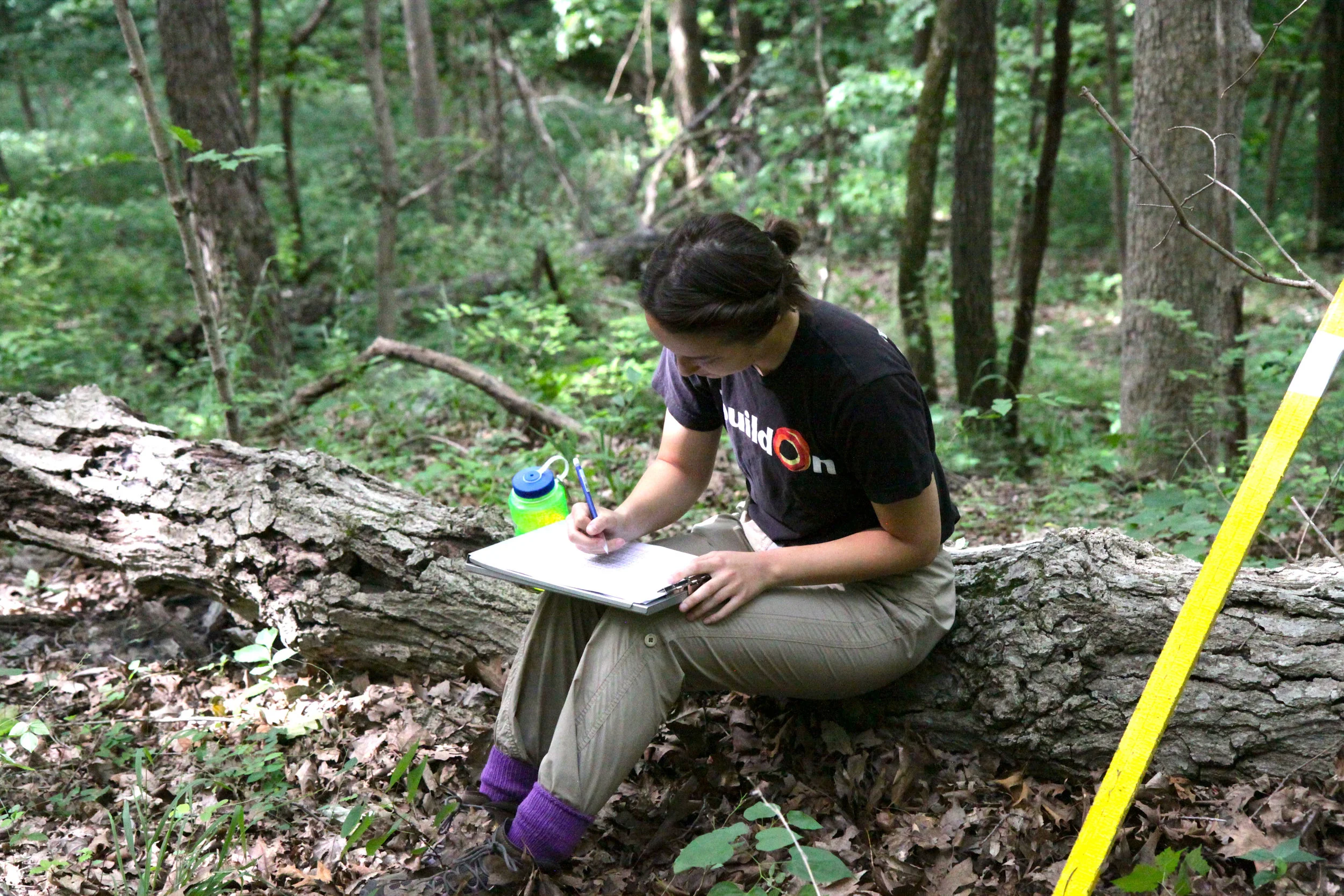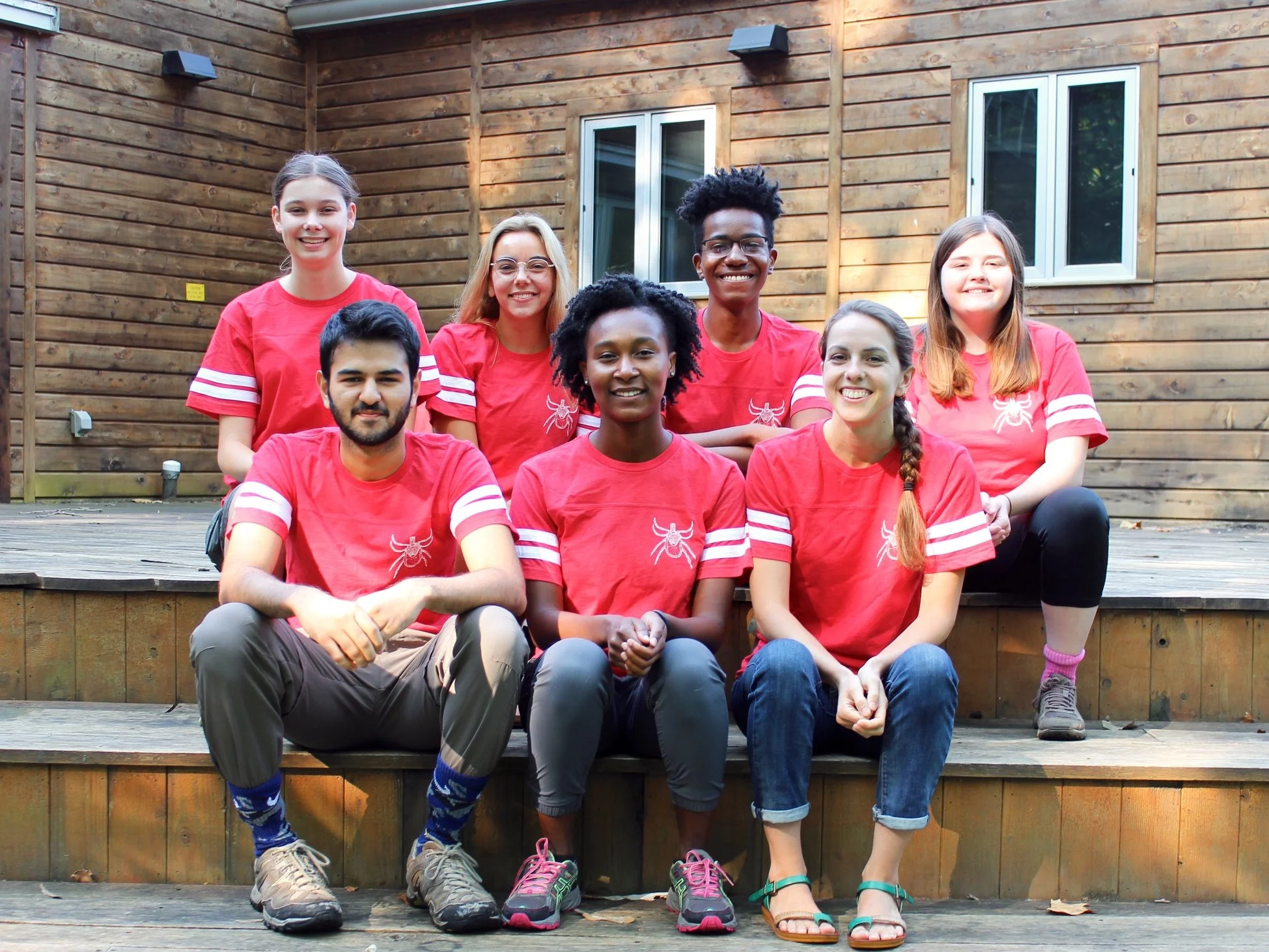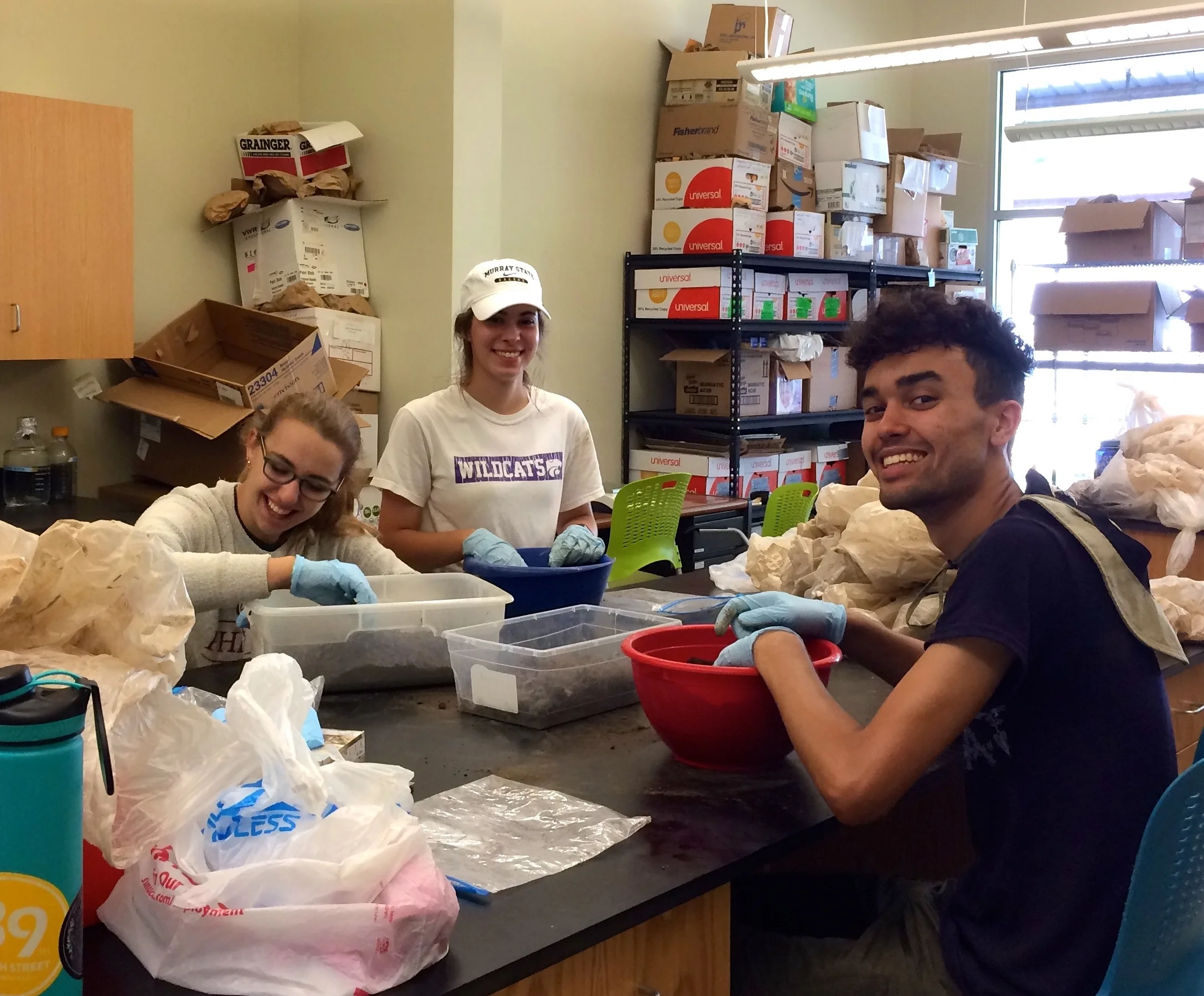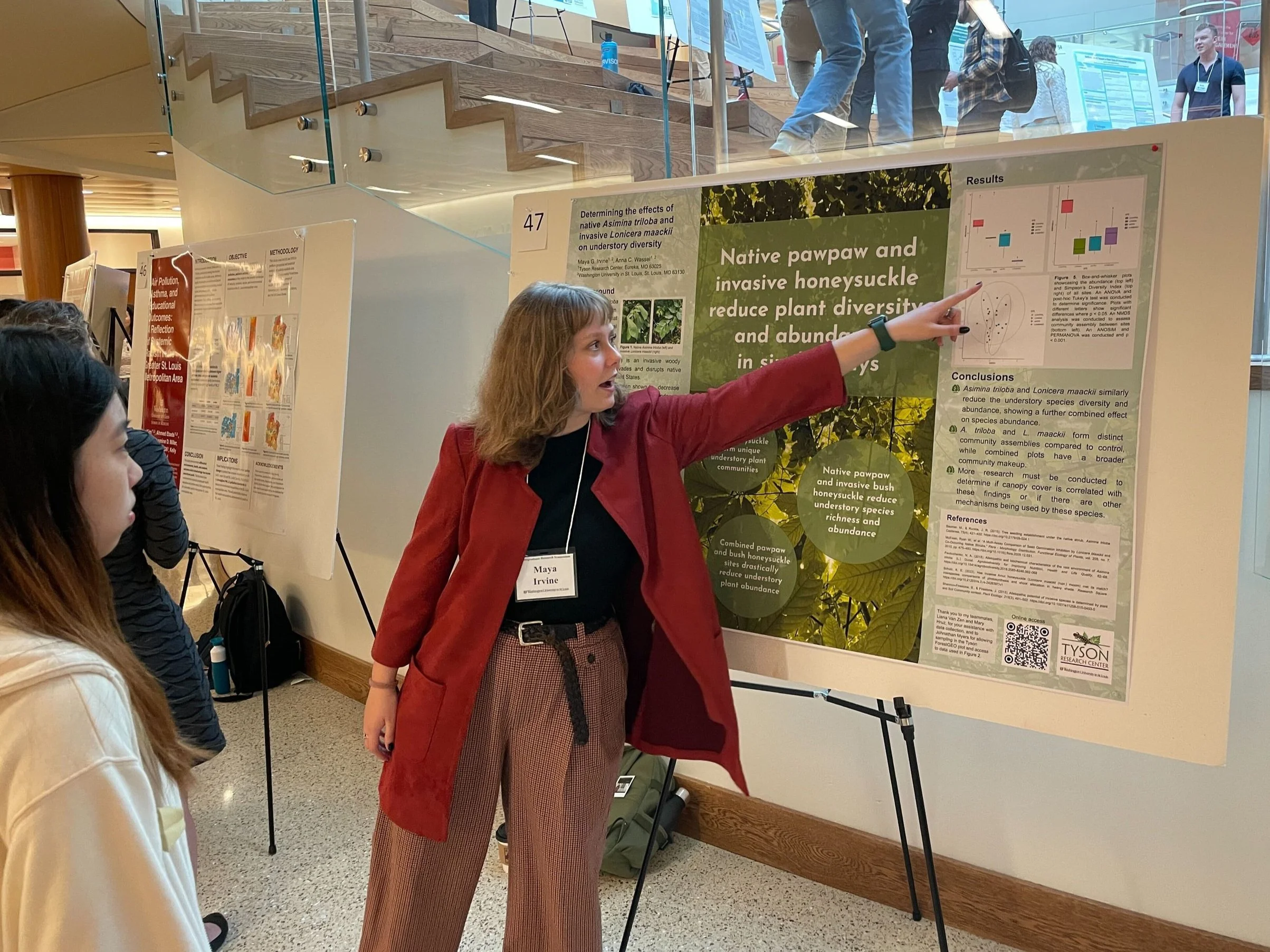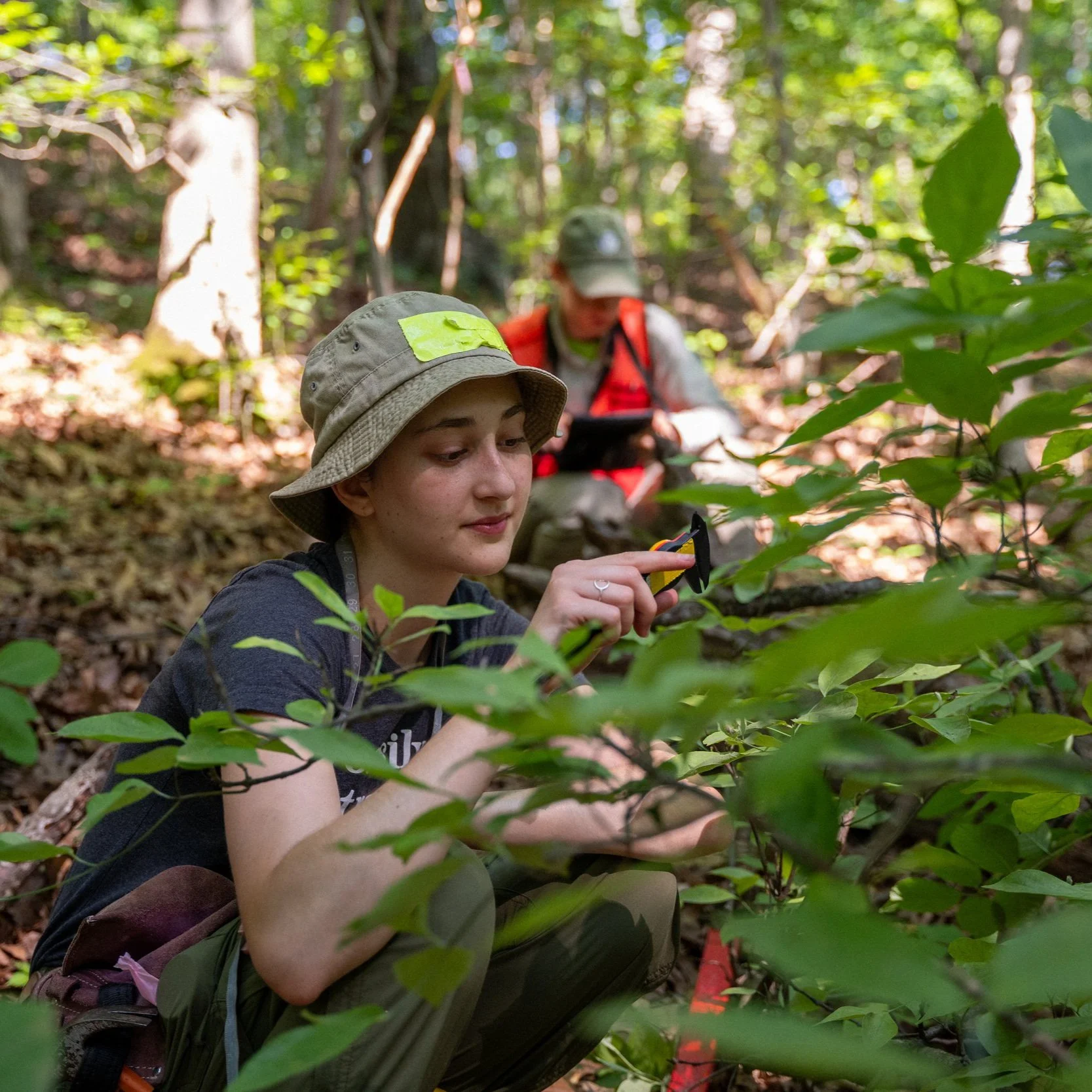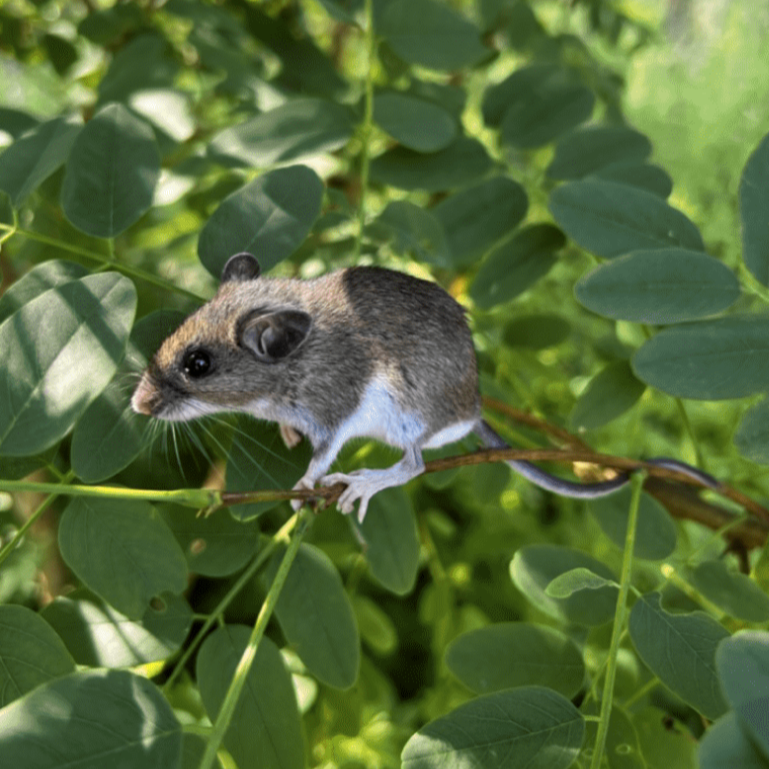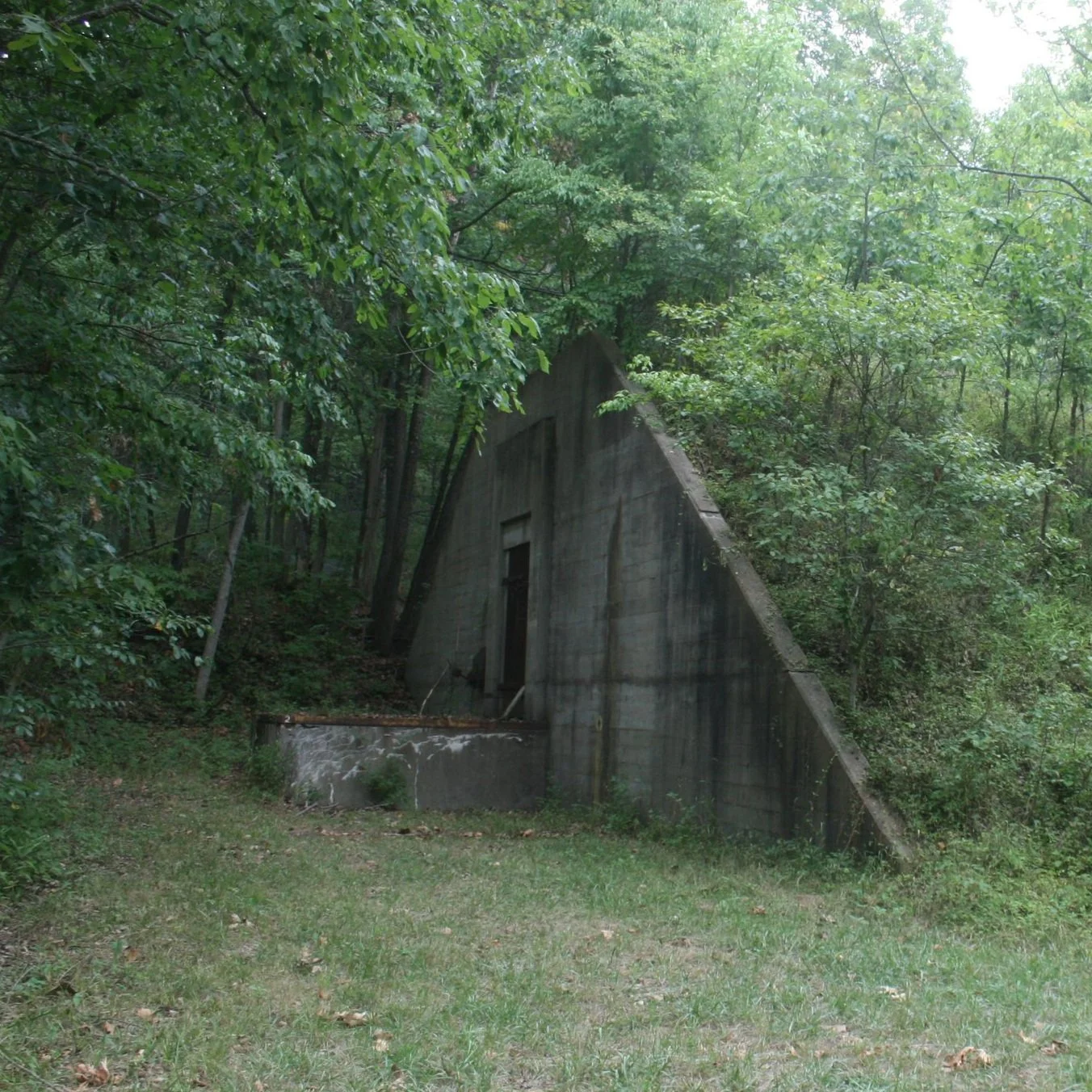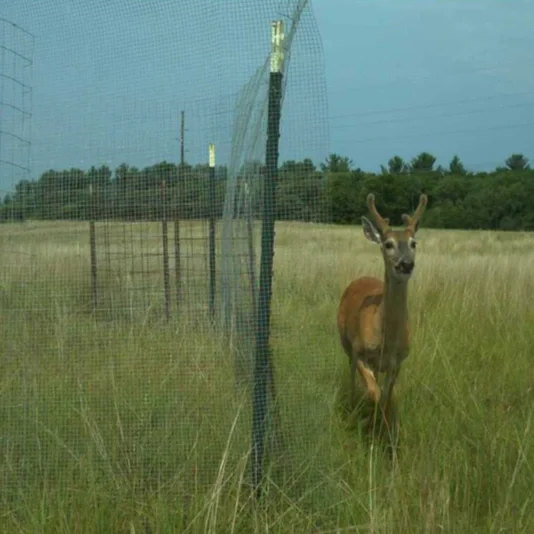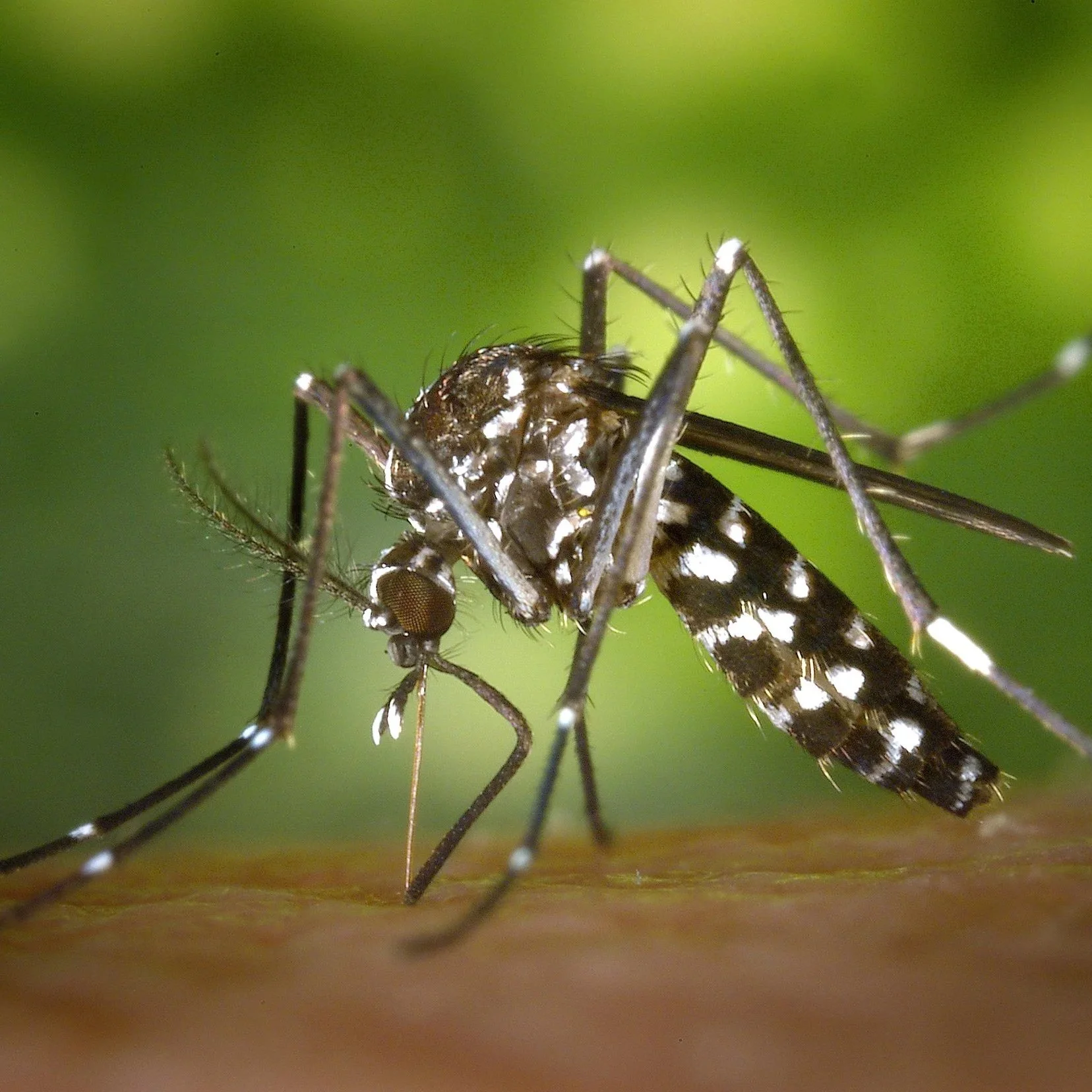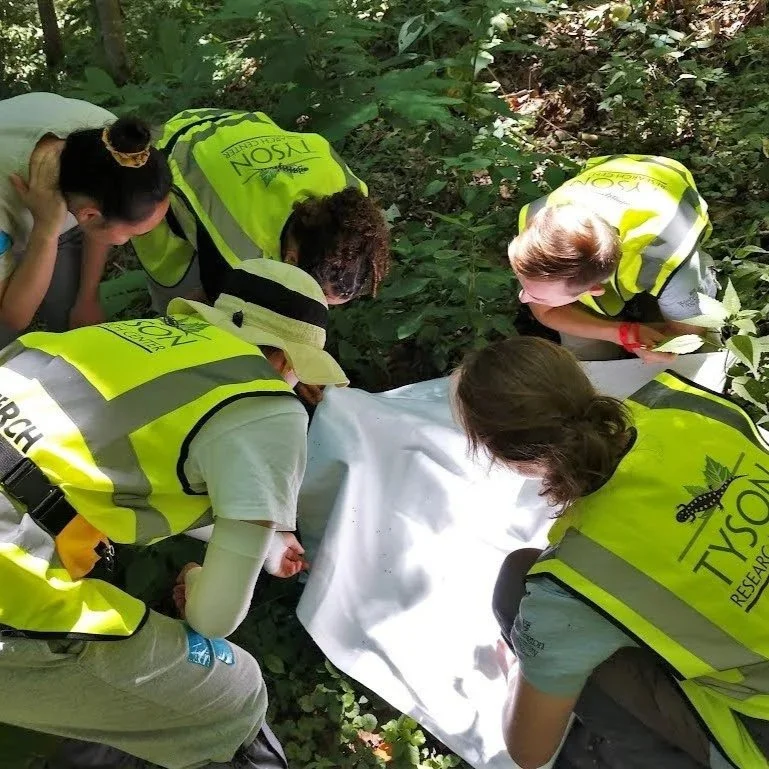Application for Summer 2026 is now open!
Spend your summer immersed within the Tyson research community
In this 10-week summer program, undergraduate students work for a faculty or staff principal investigator, post-doctoral scientist, or graduate student mentor on current Tyson-based research projects.
A weekly colloquium provides professional preparation activities including scientific communication practice, journal article discussion, research poster development, and discussion of inclusivity in STEM. Fellows also attend weekly community events with visiting environmental professionals and presentations from visiting scientists.
Tyson provides daily shuttle transportation from the Washington University Danforth Campus and each fellow receives a $6,000 stipend to assist with personal living expenses during the 10 weeks. Federal Pell grant eligible fellows are awarded $500 scholarships to supplement the stipend.
Tyson does not have housing on site and fellows may choose to secure housing on their own or through WashU summer intern housing ($2,800 flat rate plus $30 application fee). Tyson can help with reservation of WashU housing to avoid having to pay the full housing amount before receiving the fellowship stipend.
At the end of the summer field season, all fellows present scientific posters during the Tyson Summer Research Symposium. Fellows are also encouraged to present these posters again at either the Washington University Fall Undergraduate Research Symposium or another similar symposium at their own undergraduate institution. Support for this is provided by mentors and Tyson staff.
Former fellows have presented their research at regional and national conferences and several projects have resulted in peer-reviewed publications. Many of our former fellows have entered graduate programs or careers in the environmental sciences.
At Tyson we take you beyond data collection
Application information for Summer 2026
Washington University students and outstanding students from other universities are eligible to apply. We welcome people of all racial, cultural, ethnic, and gender identities.
Please consult the summer research descriptions for the Tyson Mentors below as you will be asked to indicate your preferences for placement. There are limited spaces available in the program as a whole and with each research team. Fellows are selected based on relevant experience, interests, personal and professional goals, and also with consideration of how they might fit within a collaborative team. Your answers to the application questions and essays will help us in the selection process as we build our summer research teams.
You will be asked to provide contact information for three references (employment supervisors, course professors, academic advisors, and previous mentors would be appropriate) and to upload a pdf of your current resume. (No reference letters will be accepted. Resume writing advice may be found here.)
Timeline
Application will become available in December.
Application due date is February 15, 2026.
You may be contacted by a research team for an interview in February/March.
Notification of selection or wait list status will be emailed by March 20, 2026.
Mandatory start date is May 26, 2026.
10-week program runs Tuesday, May 26 through Friday, July 31, 2026.
Application is available through the button below
Application Due Date is February 15, 2026
Questions may be directed to Susan Flowers.
Tyson mentors for 2026
Jonathan Myers: Forest Dynamics and Biodiversity
Our research team seeks to understand patterns and causes of biodiversity at multiple scales, ranging from variation in the diversity of species’ traits to gradients in the assembly, diversity, and dynamics of ecological communities …
ANDreas Kautt: Evolution of animal behavior
We investigate the mechanisms and conditions driving (or constraining) the evolution of biological diversity with a special focus on animal behavior …
SUSAN FLOWERS, Kelly Schmidt, Meredith Kelling: Humans at Tyson, past and present
Our interdisciplinary team is researching how the Tyson Valley tract has been used over time, with with particular attention given to the harm caused to humans and the land …
Cristy Portales-Reyes: Grasslands biodiversity
Our group uses long-term field experiments, observational studies, and greenhouse experiments to understand mechanisms that shape communities, reinforce species losses, or help restore diversity following perturbations …
KATIE WESTBY, KIM MEDLEY: MOSQUITO ECOLOGY AND EVOLUTION
Our lab is interested in how interactions between mosquitoes and their environment influence the geography, abundance, and survival of mosquitoes from both ecological and evolutionary perspectives ...
SOLNY ADALSTEINSSON: TICK AND WILDLIFE ECOLOGY
We are investigating strategies to reduce human and wildlife disease risk and conserve biodiversity. We focus on applied research question about how human-impacts on the environment affect interactions ...
Tyson has been fortunate to receive funds specifically dedicated to the support of research experiences.
We thank our generous donors for helping us to mentor the next generation of environmental scientists.
Former undergraduate fellows
Support for Tyson Undergraduate Fellows is provided by NSF grants, Taylor Geospatial Institute grants, internal WashU fellowship and internship funds, Arts & Sciences, and Tyson Research Center.

